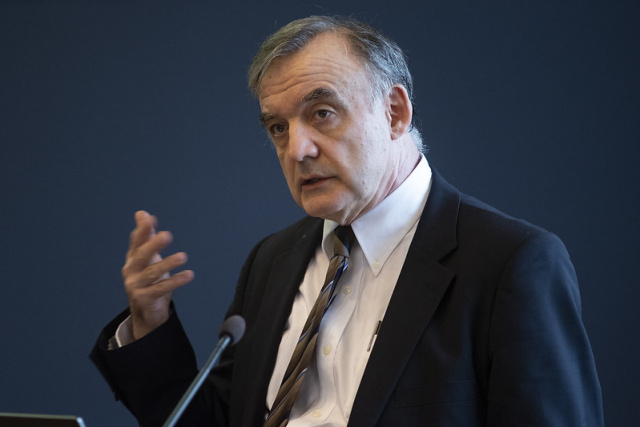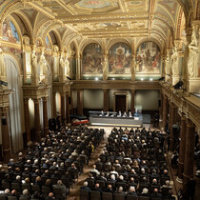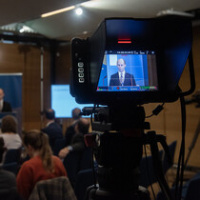Szoftverfejlesztés az intelligens energiahálózathoz: kihívások és lehetőségek - Karsai Gábor külső tag székfoglaló előadása
Karsai Gábor külső tag 2022. április 28-án megtartotta akadémiai székfoglalóját. Az angol nyelvű előadásról szóló, képgalériával bővített összefoglaló.
Software Engineering for the Smart Grid: Challenges and Opportunities
Smart electric power grid functions, like protection, autonomous energy management, remedial action schemes, and microgrid control but also a robust, secure, and decentralised software platform that enables timely decision making and control. Such a platform acts as an “operating system” for smart grid applications – it provides core services for distributed algorithms: real-time messaging, service discovery, fault management, time synchronisation, secure communications and operations, as well as application management. The applications must run close to the physical system as roundtrip delays to the cloud are not affordable.
 Karsai Gábor
Karsai Gábor (Az akadémiai székfoglaló előadáson készített képgaléria a fotóra kattintva nézhető meg.) Fotó: mta.hu / Szigeti Tamás
There are several research challenges for software engineering that need to be addressed in such a software platform. First, the platform and the applications it supports need to be executed on a completely distributed hardware architecture involving fog computing nodes and networks. Second, any computing node and any communication link can fail at any time, but the functionality of the system (i.e., power grid control) must be resilient to such events and should not suffer from local faults. When a computing node recovers, it should be seamlessly reintegrated into the overall system. Third, the software controls critical infrastructure, so it must be secured against malicious cyber actors and maintain operation even under attacks. Fourth, the development, testing, verification, deployment, and operation of software applications must be efficient in terms of human (i.e., engineering) effort needed.
With support from the US Advanced Research Project Agency–Energy, a prototype for such a software platform has been constructed. The platform was evaluated with several applications for the “Smart Grid,” including microgrid control, remedial action schemes, and transactive energy, and has become an open-source project under the Linux Energy Foundation. The platform’s novel capabilities allow the development and operation of resilient, distributed, real-time applications that must show high dependability.
Gabor Karsai is Distinguished Professor of Computer Science and Professor of Electrical and Computer Engineering at Vanderbilt University and Senior Research Scientist at the Institute for Software Integrated Systems. He has over thirty years of experience in research on systems and software engineering. He conducts research in the model-based design and implementation of cyber-physical systems, in programming tools for visual programming environments, and in the theory and practice of model-integrated computing. He received his BSc, MSc, and Dr Techn degrees from the Technical University of Budapest, in 1982, 1984 and 1988, respectively, and his PhD from Vanderbilt University in 1988.




